Table of Contents
ToggleThe real estate management landscape is experiencing unprecedented transformation. As we navigate through 2025, property managers, especially those in areas like property management Malaga, face a perfect storm of technological advancement, evolving tenant expectations, and sustainability mandates that are fundamentally reshaping how properties are managed, marketed, and monetized.
Industry data reveals that properties embracing these shifts are seeing 23% higher tenant retention rates and 18% increased profitability compared to traditional management approaches. The question isn’t whether to adapt, it’s how quickly you can implement these changes before your competition does.
Whether you’re managing a single rental property or overseeing a multi-million dollar commercial portfolio, these seven trends will determine your success in the new real estate economy.
1. Smart Technology Integration: From Luxury to Necessity
The Shift: Smart technology has evolved from a premium amenity to a basic expectation. By 2025, 78% of tenants consider smart home features essential when choosing a property.
Revolutionary Applications Driving Results:
Intelligent Energy Management Systems in holiday rental management are making a significant impact. Properties equipped with smart thermostats and AI-powered energy management systems are reducing utility costs by up to 30%. The Nest Learning Thermostat, for instance, adapts to occupancy patterns and weather forecasts, while systems like Ecobee provide detailed analytics that help property managers identify optimization opportunities.
Next-Generation Security Infrastructure Smart security systems featuring facial recognition, mobile access control, and integrated surveillance are reducing property crime by 40%. Cloud-based platforms allow real-time monitoring from anywhere, while automated alerts prevent issues before they escalate into costly problems.
IoT-Powered Predictive Maintenance Internet of Things sensors are revolutionizing building maintenance. Water leak detectors can prevent thousands in damage, HVAC monitoring systems optimize performance and predict failures, and smart smoke detectors provide early warnings and detailed incident reports.
Why This Matters Now:
Properties without smart technology integration are becoming increasingly difficult to lease at premium rates. Forward-thinking property managers report that smart features justify 12-15% higher rents while reducing operational costs by 20%.
2. The Sustainability Imperative: Green Buildings Drive Premium Returns
The Shift: Sustainability has moved from optional to essential, driven by both regulatory requirements and tenant demand. Green-certified buildings command 7% higher rents and experience 3% higher occupancy rates.
| Aspect | Impact on Property Management | Benefits for Property Owners & Managers | Examples |
| Energy Efficiency | Reduces operational costs and energy consumption. | Lower utility bills for tenants and property owners. Increased appeal to environmentally conscious tenants. | Solar panels, energy-efficient lighting systems. |
| Green Certifications | Buildings with certifications (LEED, BREEAM) attract higher-paying, long-term tenants. | Higher rent potential, greater tenant retention, eligibility for tax incentives. | LEED-certified buildings, BREEAM-rated offices. |
| Sustainable Materials | Use of eco-friendly building materials increases market value. | Increased property value, less maintenance over time, improved tenant satisfaction. | Recycled steel, sustainable wood, low-VOC paints. |
| Water Conservation | Reduces water consumption with low-flow fixtures and rainwater harvesting. | Cost savings on water bills, attractive to eco-conscious tenants, aligns with sustainability trends. | Low-flow faucets, rainwater harvesting systems. |
| Indoor Air Quality (IAQ) | Better air quality through natural ventilation and non-toxic materials. | Healthier living environments, higher tenant satisfaction, reduced turnover rates. | Non-toxic paints, improved HVAC systems. |
| Government Incentives | Access to local and national tax rebates or financial support for green improvements. | Lower initial investment costs, faster ROI, improved property marketability. | Tax credits for energy-efficient upgrades. |
Key Implementation Strategies:
Green Certification Pursuit LEED and BREEAM certifications are becoming standard expectations. Properties with these certifications see faster lease-up times and attract higher-quality tenants willing to pay premium rents for environmentally responsible spaces.
Renewable Energy Integration Solar panel installations, LED lighting systems, and energy-efficient appliances are delivering immediate ROI. Government incentives can cover up to 50% of installation costs, while ongoing energy savings provide long-term financial benefits.
Sustainable Operations Beyond building features, operational practices matter. Properties implementing comprehensive recycling programs, using eco-friendly cleaning products, and adopting water conservation measures are seeing measurable improvements in tenant satisfaction scores.
The Bottom Line Impact:
Sustainable properties are future-proofed against increasingly strict environmental regulations while appealing to the 73% of millennials willing to pay more for sustainable living options.
3. Remote Management Revolution: Enabling Global Real Estate Investment
The Shift: International real estate investment is booming, with cross-border property transactions up 45% since 2023. This growth demands sophisticated remote management capabilities.
Technology-Enabled Solutions:
Comprehensive Digital Platforms Cloud-based property management software like AppFolio, Buildium, and Yardi enable complete portfolio oversight from anywhere. These platforms integrate rent collection, maintenance scheduling, financial reporting, and tenant communication into unified dashboards.
Virtual Property Operations Drone inspections, virtual reality property tours, and remote maintenance consultations are replacing traditional in-person requirements. This technology reduces operational costs while maintaining high service standards.
Global Communication Infrastructure Multi-language support, time-zone-aware scheduling, and cultural sensitivity training are becoming standard requirements for property management teams serving international investors.
Strategic Advantages:
Properties with robust remote management capabilities attract global investors willing to pay premium management fees for professional, technology-enabled services.
4. Data-Driven Decision Making: Analytics as Competitive Advantage
The Shift: Property management is becoming increasingly scientific, with data analytics driving every major decision from pricing to maintenance scheduling.
Advanced Analytics Applications:
AI-Powered Rent Optimization Machine learning algorithms analyze local market conditions, property features, seasonal trends, and demand patterns to recommend optimal pricing strategies. Properties using AI-driven pricing see 8-12% higher rental income.
Predictive Tenant Analytics Advanced screening algorithms evaluate not just credit scores and income, but also social media presence, lifestyle patterns, and behavioral indicators to predict tenant success and longevity.
Operational Intelligence Smart building systems generate massive amounts of data about energy usage, occupancy patterns, and system performance. Property managers using this data strategically reduce maintenance costs by 25% while improving tenant satisfaction.
Implementation Strategy:
Start with basic analytics tools and gradually build sophisticated data capabilities. The initial investment pays for itself within 12-18 months through improved efficiency and decision-making.
5. Tenant Experience Excellence: The New Competitive Battlefield
The Shift: In an increasingly competitive rental market, tenant experience has become the primary differentiator. Properties focusing on experience report 40% lower turnover rates.
Experience Enhancement Strategies:
Personalization at Scale Modern tenants expect customized services. This includes flexible lease terms, personalized amenities, and tailored communication preferences. Technology enables property managers to deliver personalized experiences efficiently across large portfolios.
Seamless Digital Integration Tenant portals offering 24/7 access to services, mobile apps for maintenance requests, and integrated payment systems are no longer optional. Tenants expect Amazon-level convenience in their housing experience.
Community Building Initiatives Properties that foster genuine community through social events, shared spaces, and digital platforms see higher tenant satisfaction and longer lease terms. Co-working spaces, fitness facilities, and community gardens are particularly effective.
Measurable Results:
Properties prioritizing tenant experience achieve 92% lease renewal rates compared to 75% industry average, while commanding 10-15% premium rents.
6. Commercial Property Evolution: Flexibility as the New Standard
The Shift: The commercial real estate sector is undergoing radical transformation as work patterns evolve and businesses demand unprecedented flexibility.
Emerging Commercial Trends:
Hybrid-Work Accommodation Office spaces must now accommodate fluctuating occupancy levels. Flexible lease terms, modular office designs, and shared amenities are becoming standard offerings.
Technology Infrastructure Requirements Commercial tenants demand robust IT infrastructure, high-speed internet, advanced security systems, and integrated smart building features. Properties meeting these requirements command significant premium rents.
Wellness-Focused Environments Air quality monitoring, circadian lighting systems, biophilic design elements, and wellness amenities are becoming competitive necessities rather than luxury features.
Strategic Positioning:
Commercial properties adapting to these trends are seeing 20% higher occupancy rates and 15% premium lease rates compared to traditional office buildings.
7. Portfolio Optimization: Strategic Adaptation for Long-Term Success
The Shift: Successful property investors are actively reshaping their portfolios to align with emerging market demands and demographic trends.
Strategic Considerations:
Technology-Forward Investments Properties with built-in smart infrastructure, fiber-optic connectivity, and renewable energy systems are appreciating faster and attracting premium tenants.
Demographic Alignment Understanding generational preferences is crucial. Gen Z and millennial tenants prioritize sustainability, technology, and flexibility, while Gen X and baby boomers value security, convenience, and traditional amenities.
Market Diversification Geographic and property-type diversification helps weather economic uncertainty while capturing emerging opportunities in growing markets.
Implementation Framework:
Develop a 3-5 year strategic plan incorporating market research, demographic analysis, and technology roadmaps to guide investment decisions.
Conclusion: Your Next Steps in Real Estate Management Evolution
The real estate management industry is at an inflection point. Properties and management companies that embrace these seven transformative shifts will thrive in the new economy, while those clinging to traditional approaches will struggle to remain competitive.
Success in 2025 requires more than awareness; it demands action. Start by assessing your current portfolio against these trends, identify the most impactful improvements for your specific situation, and develop a phased implementation plan. If you’re in the holiday rental space, it’s essential to understand the market’s evolving dynamics, particularly in popular destinations like Costa del Sol. A resource like Vivi Property Management’s guide on holiday rentals in Costa del Sol can offer valuable insights into optimizing your property and maximizing returns.
Ready to Transform Your Property Management Strategy?
At Vivi Property Management in Estepona, we’re not just keeping pace with these trends—we’re helping define them. Our comprehensive approach combines cutting-edge technology, sustainable practices, and tenant-focused services to maximize your property’s potential.
Contact us today for a complimentary portfolio assessment and discover how these game-changing shifts can transform your real estate investments.
Visit our Google Business Profile to learn more!

